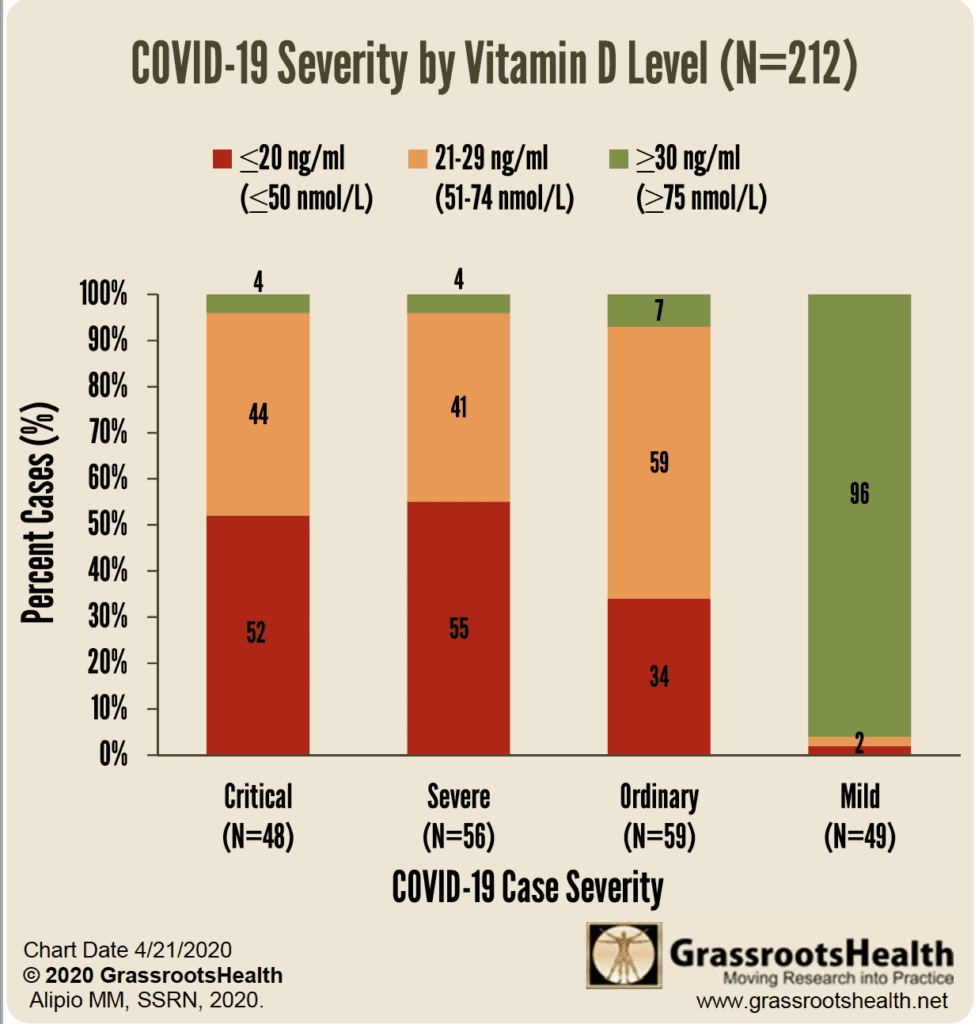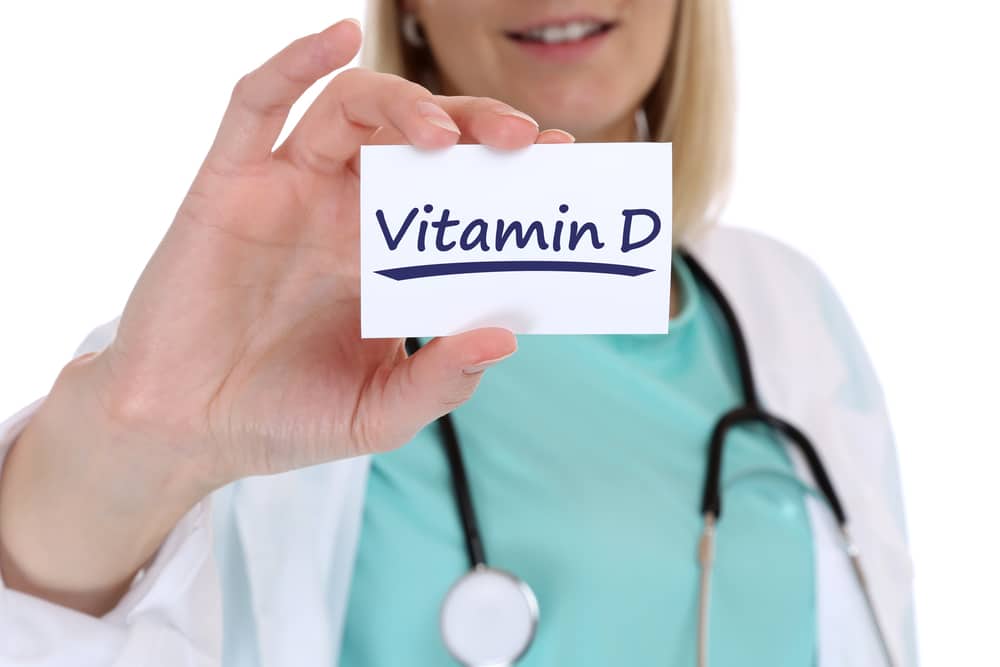Do you need to take Vitamin D supplements?
If you’ve managed to get some sunshine during the lockdown period, you’ll have got a good dose of vital Vitamin D. But not everyone has managed that and especially not those who are ill or in hospital.
Last week, Public Health England finally published recommendations to take Vitamin D supplements due to worry about potential deficiencies as a result of being stuck inside for so long.
It’s taken them too long to do this in my view. We know how vitamin D deficient we can all get in the UK over the winter months, so it’s pretty sure that our levels are going to be at their lowest in March, and facing this pandemic with such deficiencies was surely going to put us at a disadvantage!
You can watch the video;
Or you can listen to the podcast episode;
The Case For Vitamin D Supplements
Vitamin D insufficiency affects almost 50% of the population worldwide and it is an independent risk factor for total mortality in the general population.The evidence for Vitamin D has been there all along. As well as it’s role in cancer protection, heart disease, bone disease, autoimmune diseases, type-2 diabetes, and depression, Vitamin D supplementation has been reported to reduce the risk of respiratory infection, regulate cytokine production and limit the risk of other viruses such as influenza.
And of course now scientists are looking at the impact of Vitamin D deficiency on COVID 19.
There are several factors that associate Vitamin D deficiency with the impact of this infection;
- the outbreak occurred in winter, a time when D concentrations are lowest
- the number of cases in the Southern Hemisphere near the end of summer are low
- vitamin D deficiency has been found to contribute to acute respiratory distress syndrome
- case-fatality rates increase with age and with chronic disease comorbidity, both of which are associated with lower Vitamin D concentration
In a recent article published in the US, Vitamin D supplementation was reviewed as a means to reduce COVID 19 infections.
The study said;
“through several mechanisms, vitamin D can reduce risk of infections. From lowering viral replication rates and reducing concentrations of pro-inflammatory cytokines that produce the inflammation that injures the lining of the lungs, leading to pneumonia, as well as increasing concentrations of anti-inflammatory cytokines”.
First published data
In the first published data comparing the severity of symptoms to vitamin D serum levels, they tested 212 COVID-19 patients who had been hospitalized in Southern Asia.
Of all the COVID-19 cases;
- 86% of all cases among patients with normal vitamin D levels were mild, while 73% of cases among patients with vitamin D deficiency were severe or critical
- For each standard deviation increase in vitamin D level, the odds of having a mild case compared to a severe case were 7.94 times more, and the odds of having a mild case compared to a critical case were 19.61 times more
- All outcomes were statistically significant

Risk factors for Vitamin D deficiency
- Age – aging skin cannot synthesize vitamin D as efficiently as younger skins, as well as older people being more likely to spend more time indoors
- Darker skins – larger amounts of the pigment melanin in the epidermal layer in darker skin reduces the skin's ability to produce vitamin D from sunlight
- Non-exposure to sunlight – those who stay indoors, cover themselves up or where sunscreen
- Obesity – greater amounts of subcutaneous fat capture more of the vitamin and block its release into the circulation
- Fat malabsorption – Vitamin D is fat soluble, therefore it requires some dietary fat in the gut for absorption. Individuals with reduced ability to absorb dietary fat (including medical conditions such as liver disease, cystic fibrosis, and Crohn's disease) might require vitamin D supplements.
- Genetics – certain genes can inhibit absorption of Vitamin D supplements
It may also be a factor in the worse outcomes associated with the BAME (Black, Asian, Minority Ethnic) population – we know they are more susceptible to deficiency. I'm sure once this is over, we'll know more on this.
Vitamin D supplements
While Public Health England are advising minimal amounts of Vitamin D supplements per day (400 IU), this is woefully inadequate if you are deficient. If you expose your skin to the midday sun until you start getting pink, you’ll make between 10,000-25,000k IU in one hit!
Current trials in France are giving 400,000 and 50,000 IU in a single dose to participants, and the Spanish trial is giving 25,000 IU per dose.
Clearly 400IU is not going to do much at all!
You certainly don't want to be taking huge doses of Vitamin D, however a minimum of 2000iu per day (when you are not exposed to the sun) is perfectly safe for most people. And don't forget that Vitamin D is also vital for your bones, brain, heart and can be protective against certain forms of cancer.
Make sure you are getting the co-factors of Vitamin D too; magnesium, K2, zinc, Vitamin A and E. I recommend a good multivitamin, a D3 with K2 formula and a separate Magnesium supplement.
You can find all these and other recommended brands in my collection at Approved Vitamins.
Testing
The only true way of knowing how much you need to supplement is to get your levels tested.
Home test kits are available by post in the UK, or you can speak to us about the test packages we routinely run to check hormones, nutrients and gut health.
Reference range UK;
| Status | Blood level |
| Deficient | < 25 nmol |
| Insufficient | 25-50 nmol |
| Adequate | 50-75 nmol |
| Optimal | >75 nmol |
You are looking to be in the Optimal range of 75nmol and above.
Summary
We don’t yet know if Vitamin D supplements could be an effective treatment for COVID 19, but isn't it worth a try? It’s a cheap, available, and safe option. If it prevents one death, it’s surely worth it.
Do contact us if you need any help with your health or hormones.

